The movie opens with narration by Io (Gemma Arterton), who in Greek mythology was a mortal lover of Zeus and would be Perseus' great great great great great great great grandmother, as she explains to us of how the gods defeated the Titans with the aid of a monstrous beast called the Kraken which had created by the god Hades, and that after that they divided the universe up with Zeus (Liam Neeson) taking the skies, Poseidon the seas and poor Hades (Ralph Fiennes) being tricked into getting stuck with the underworld. Some interpretations of the myths hint that Hades may have not been all that keen with his prize but he certainly was never the villain as he has been portrayed in many movies such as Disney’s Hercules for example, in fact he was the more altruistically inclined of the gods, even the famous story of his kidnapping of Persephone was done at the request of Zeus. His ruling of the underworld kind of got blended with Christian myth of Lucifer governing Hell thus turning him into an easy target.
Hades, the most misunderstood of gods.
Then we have this bit where Hades is the master of the Kraken, which is idiotic on so many levels, for one the name Kraken derives from Norse mythology and the beast in Greek mythology that Andromeda was to be sacrificed to was a sea monster known as the Cetus, a creature set forth as wrathful act of Poseidon when Queen Cassiopeia compared her daughter to the Nereids, sea nymphs most known for accompanying the sea god. This name change divergence from the myth first appeared the 1981 movie but they at least had the creature “let loose” by Poseidon and not the god of the underworld, and that is just the first taste of not just how far this remake goes to diverge from the Greek myths but on how much it completely abandons the plot of the movie it was supposedly remaking. In the original myth, and the 1981 movie, the basic story is of the hero Perseus having to save the fair Andromeda from being sacrificed to a monster. In this remake it’s about mankind warring with the gods, which if you understand the principle idea of gods, and especially the Greek gods, you’d know what a colossally stupid idea that is.Early atheism at work.
We learn from Io that King Acrisius (Jason Flemyng) of Argos defied the gods and laid siege to Olympus. Um, how exactly does one lay siege to the home of the gods? We’re talking beings with unimaginable power, and apparently the very creators of the human race itself, so I don’t see any military force standing a chance. The film doesn't bother to show how these events went down because the very idea is beyond reason. For this sacrilege our Zeus here decides to punish Acrisius by knocking up his wife Queen Danae (Tine Stapelfeldt), he does this by shape-shifting into the form of the King and if you’ve seen John Boorman’s Excalibur you may realize this is the origin of King Arthur was conceived and not that of Perseus. In the myth Zeus impregnated Danae, who was the king’s daughter not his wife, while in the form of a golden shower, and she doesn't die as she does in this movie but raised Perseus as a single mother. Director Louis Leterrier tends to borrow from multiple sources, without a care as to what mythology they are from, and he even has Perseus (Sam Worthington) to team up with some Djinn from the Arabian nights."Prince Ali - fabulous he - Ali Ababwa!"
The basic plot of this remake is that Hades wants to overthrow Zeus and as his brother gets his power from the humans who worship him Hades’ plan is to drive a wedge between the mortals and Zeus so as to weaken him enough for takeover. When idiot soldiers under orders of King Cepheus (Vincent Regan) topple a statue of Zeus the god of the underworld steps in and destroys them, unfortunately there is some collateral damage and Perseus adoptive family is killed. Zeus gives Hades permission to punish the mortals and when Queen Cassiopeia (Polly Walker) compares her daughter Andromeda (Alexa Davalos) to the goddesses Aphrodite he uses that as grounds to kill Cassiopeia and demands that Andromeda be sacrificed to the Kraken in ten days or the city and all who live there will perish. Then just before leaving Hades spots Perseus and outs him as being the son of Zeus, and this does not go over well with the people of Argos.Sam Worthington as Perseus the Bland.
In this movie Perseus has real daddy issues and wants nothing to do with Zeus, he blames all the gods for the death of his family, and refuses any magical aid Zeus offers. Note: In this version Zeus is completely unaware that he fathered a child with Danae and when he learns of Perseus he invites him to move to Olympus as if that is something a demigod does. Perseus goes off on his quest to find a way to defeat the Kraken, along with him a group of soldiers led by Draco (Mads Mikkelsen), and they encounter the now mad and deformed Acrisius whose blood turns into giant scorpions (a nod to the original where the blood from the severed head of Medusa created giant scorpions), they match wits with the Stygian witches, enter the underworld via Charon the Ferryman, and battle the gorgon Medusa.Oh, and everyone dies but Perseus.
Through the entire quest Perseus denies his demigod nature to such extreme and idiotic levels, when Zeus leaves him a magic sword he refuses to take it when something like that could clearly come in handy on a quest, and when Draco calls him out on this bullshit stating, “Your pride is killing my men. You were given gifts use them!” Perseus’ brilliant rebuttal is that he “Can’t become like them” as if using a magic sword is some kind of slippery slope to become a god, and he tells Draco, “If I do this I do it as a man.” Draco accurately points out that Perseus is in fact not just a man but the little twit responds, “I chose to be.” I’m not sure you can chose not to be a demigod and as he spent his entire life as a fisherman his ability to survive combat with numerous monsters makes it clear that his demigodness is what's keeping him alive. Then to prove just what a complete tosser he is after Draco and all his men are dead, and Io is murdered by a backstabbing Acrisius, he picks up the sword of the gods and kills Acrisius before riding off on Pegasus to fight the Kraken.Apparently pride goeth after everyone else’s fall.
One of the strangest changes this movie does make, aside from making Perseus a complete tool that is, would be in the filmmakers decision to make Andromeda a minor character instead of the hero’s love interest. As changes go that’s a pretty big one, that’s like if Robin Hood wasn’t actually into Maid Marion or King Arthur didn’t give a shit about Guinevere. The only real screen time Andromeda gets in this film is when she offers Perseus a drink and a couple of shots of her wandering the streets of Argos helping the needy. At one point her father jokingly calls her “A missionary” which is odd as this is centuries before Christianity was founded, and when it comes time to be sacrificed her father refuses to see his daughter offered up to the Kraken, but when a mob of city folk storm the palace she meekly goes with him. This is more in keeping with the plot of the movie Dragonslayer and not the story of Perseus and Andromeda. It’s so odd that a film that spends so much effort to distance itself from the actual myth seems to go out of its way be as unoriginal as possible.Andromeda’s sacrifice looks like a lift from Peter Jackson’s King Kong.
This 2010 remake isn’t a complete garbage fire as the production designers do some really great stuff with the monsters put on display here, where Ray Harryhausen’s stop-motion creations were limited by what he could do with clay models modern CGI makes the impossible possible, and though the film does borrow Medusa’s snake body from the Harryhausen design they took an interesting take on the gorgon by having her initially look quite attractive, that is until she strikes with her gorgon stare.Medusa is kind of hot.
Until she’s not.
The sequence of Perseus and his men battling Medusa in the ruins of her temple is easily the best sequence in the movie, as it was in the original, the gorgon moves with the speed and grace of a striking snake, and when she does lose her head it is almost tragic. She was just guarding her home and didn’t invite these assholes to come in and decapitate her, but sadly after this great sequence we still another half hour of petulant Perseus to put up with before the end credits roll.Now aside from the wonderful Medusa the film does some interesting takes on the other mythologicals.
The Stygian witches are impressively ghastly, their gift of prophecy may suck and they don’t know a Titan from a whole in the ground, but they are definitely scary.
Charon, the ferryman who brings you across the river Styx, seems to be part of his boat and is also pulled through the water by the dead. Super creepy.
The winged horse Pegasus in this film is simply spectacular, and its flight during the battle with the Kraken is simply spectacular.
The Kraken itself is no laughing matter as it takes the tentacle aspects of the Norse monster and then amps it up to eleven, but that the residents of Argos place their sacrifice at the edge of the city, ensuring massive collateral damage, is just another example of many stupid moments in this film.
Unfortunately you could fill this movie with wall-to-wall cool monsters and it still wouldn’t make it any less terrible, Sam Worthington’s Perseus is so boring and terrible throughout that it sinks the film at every turn, the central plot meanders with no sense of urgency even though the hero has a deadline (that we don’t give a damn about Perseus and Andromeda is the key problem here), and the fact that this film made enough money to warrant a sequel still amazes me. Director Louis Leterrier took elements from the Greek myths, tossed them in a blender, mixed in plotlines from other movies and then hit purée. The 1981 original was no cinematic classic but it was full of fun and charm and had a fantastic supporting cast. What good actors this film managed to lure in are poorly misused.
Throw as many nods to the original as you want it we are still going to call bullshit.
Note: According to the director, the movie was meant to end with Perseus and Andromeda ending up together, as it happened in the myth, however the studio disliked this idea and the movie was re-shot to have Perseus and Io end up together. Also the studio nixed his plans to make the film 3D but when Avatar made shit ton of money they decided to go with the post-conversion process, Leterrier has sense remarked, “It was famously rushed and famously horrible. It was absolutely horrible, the 3D. Nothing was working, it was just a gimmick to steal money from the audience. I’m a good boy and I rolled with the punches and everything, but it’s not my movie.”Studio interference ruining a movie is nothing new but I doubt that if left to his own devices Leterrier's the result would have been much better as the central core of men rebelling against the gods is patently ridiculous in a world where the gods can smite you in the blink of an eye. A bland hero was just the cherry on this shit sandwich.
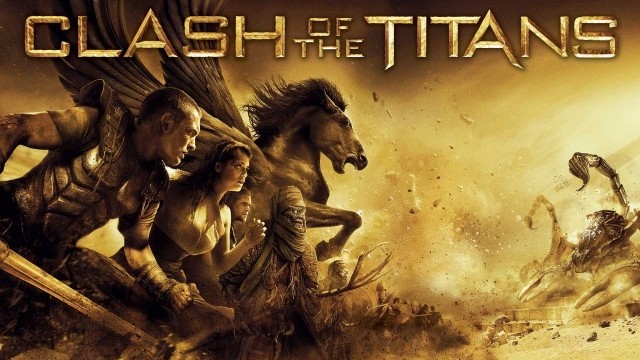
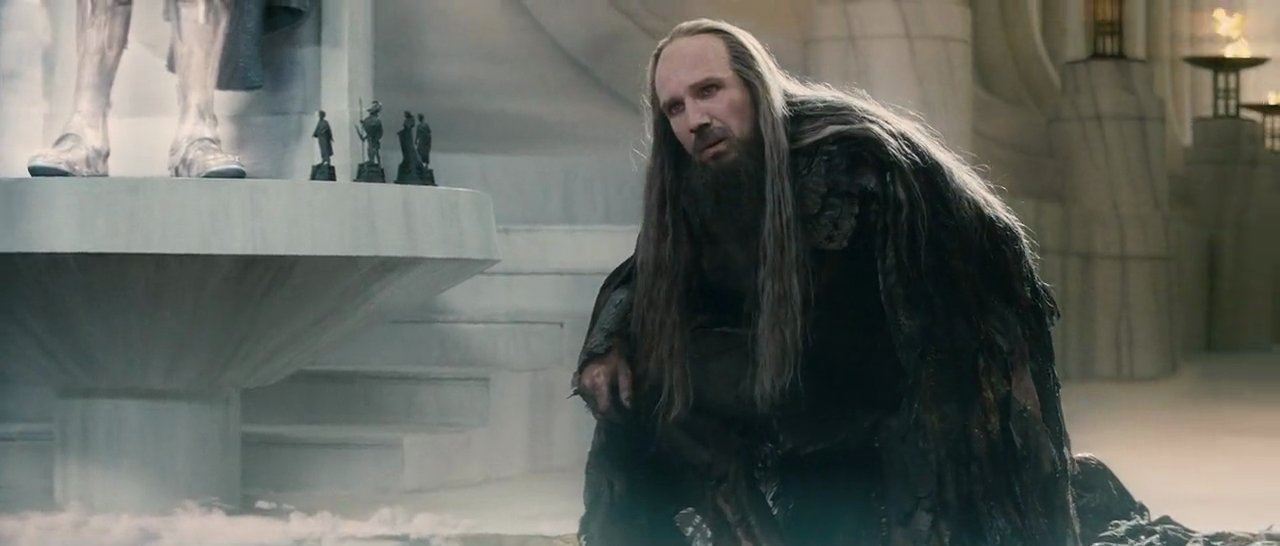
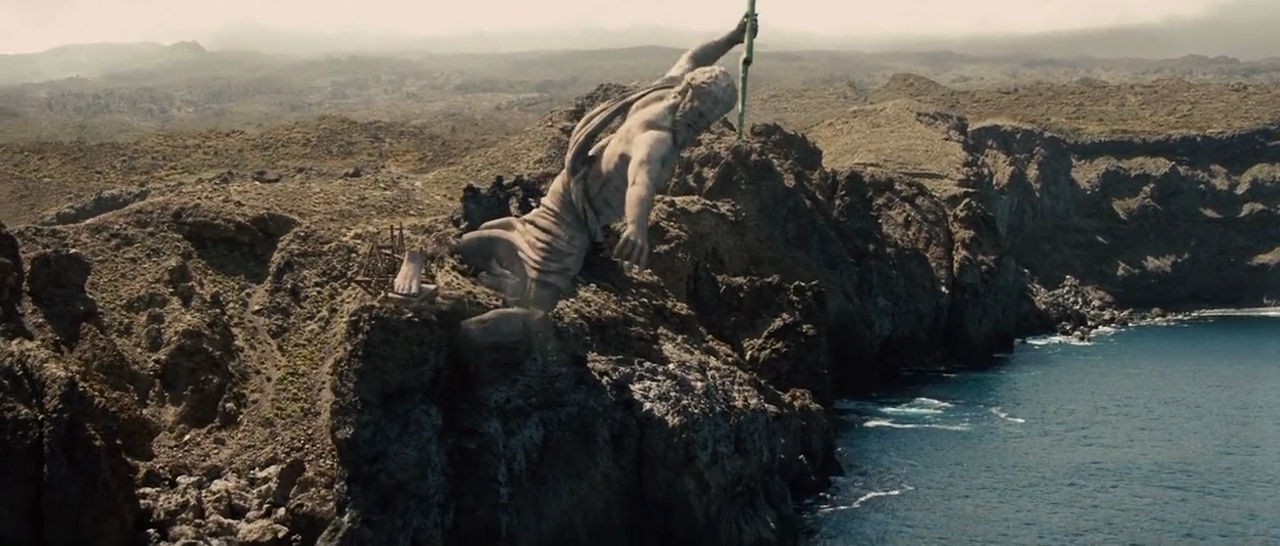
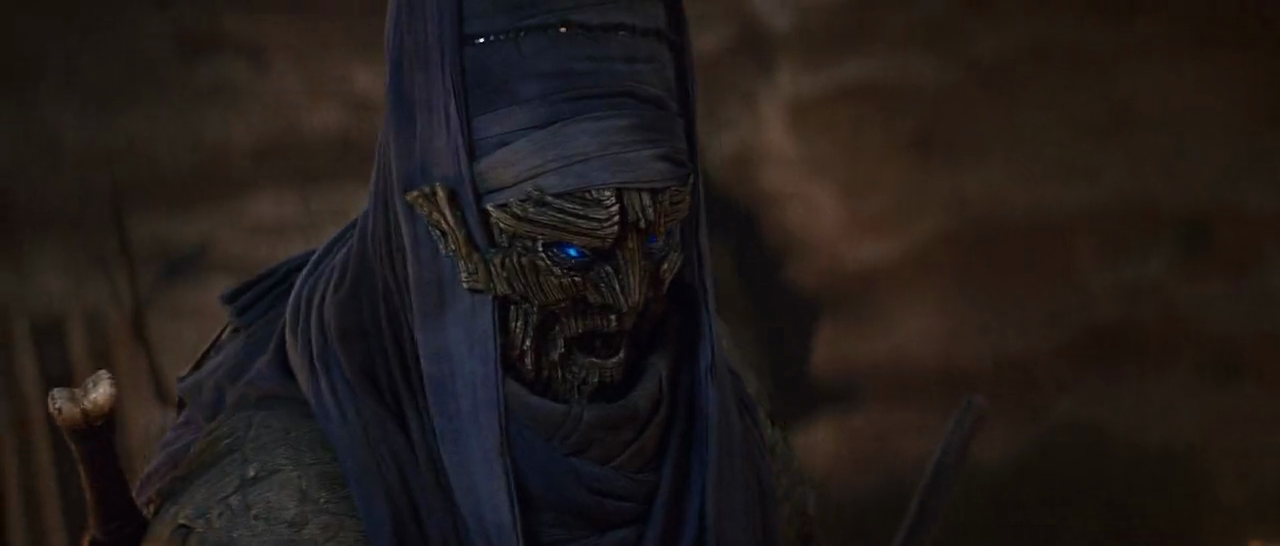
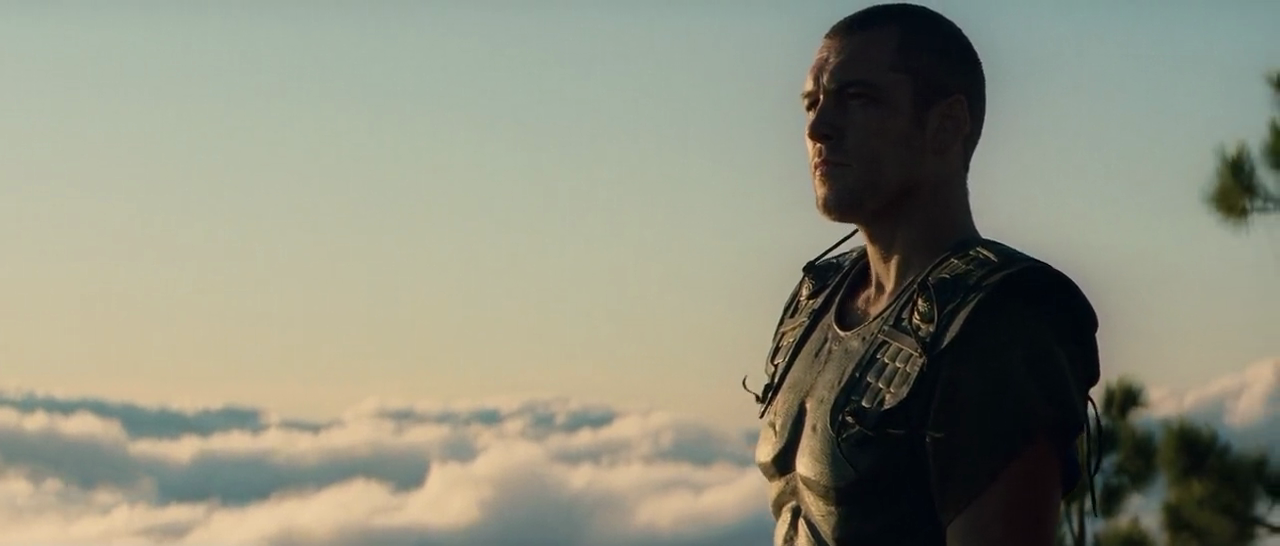
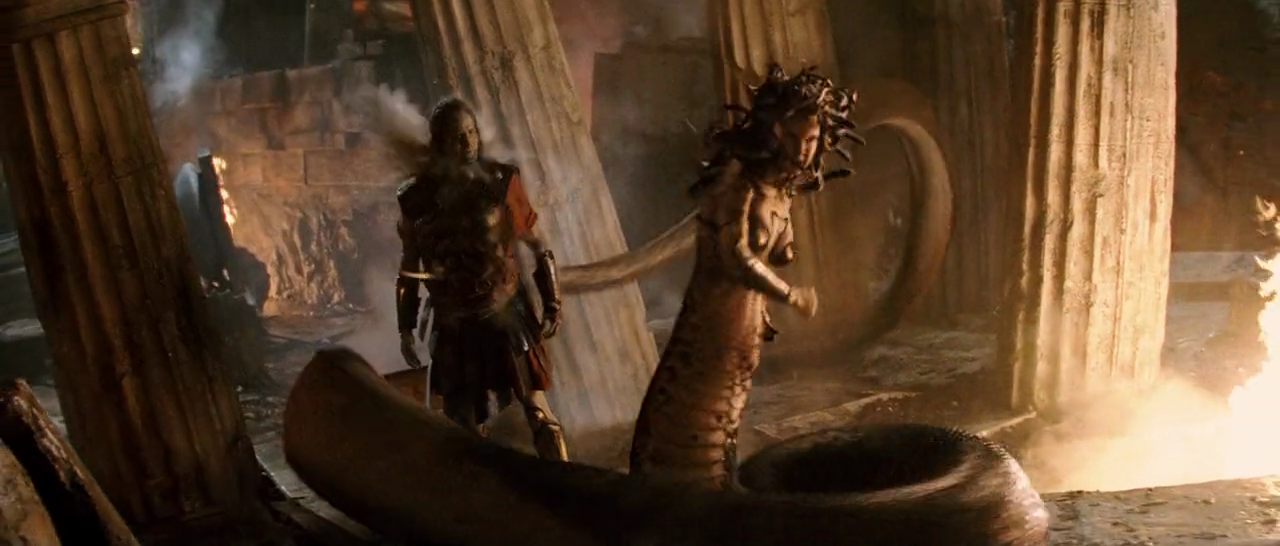
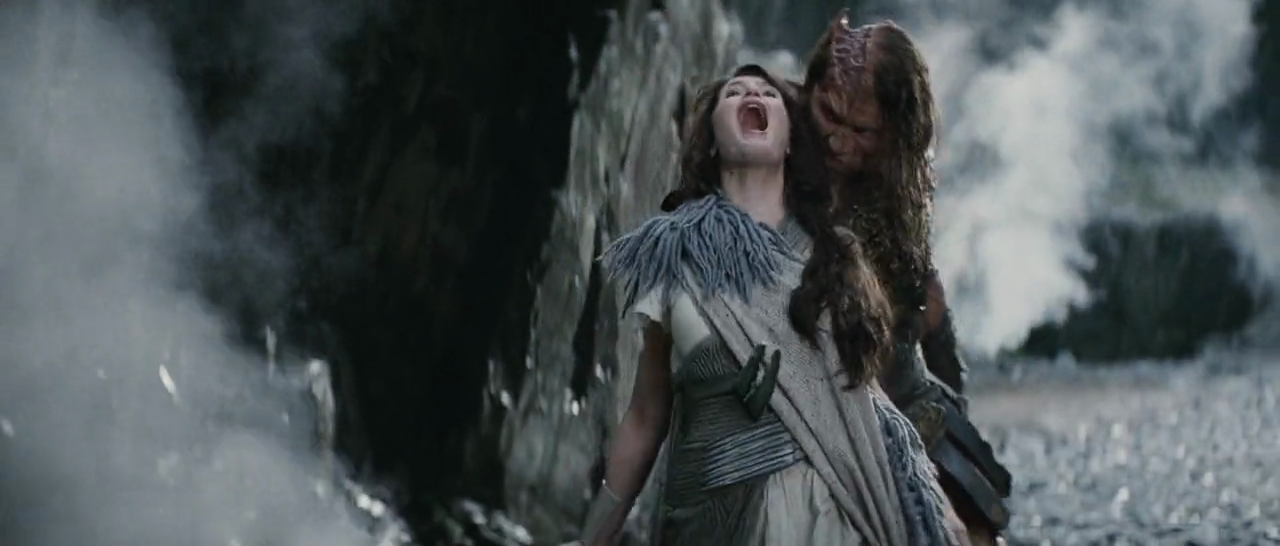
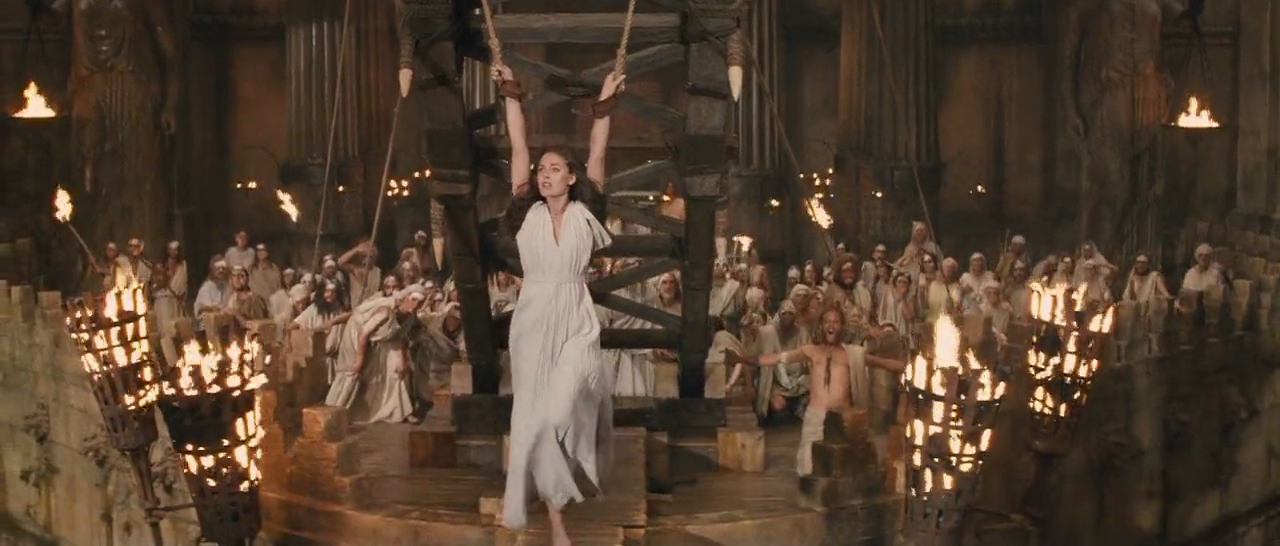
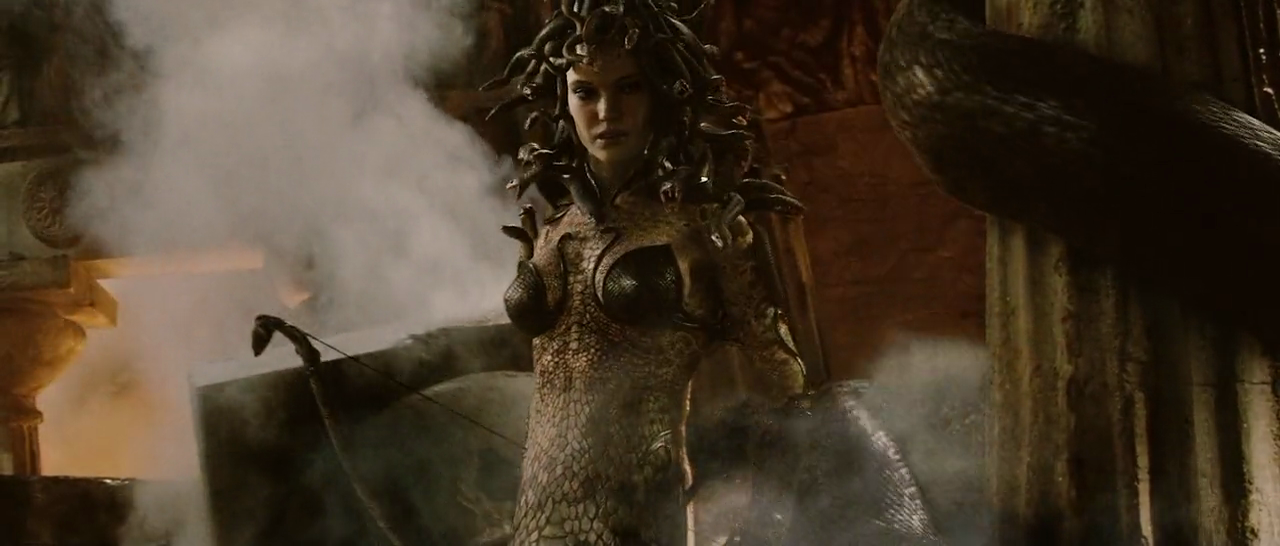
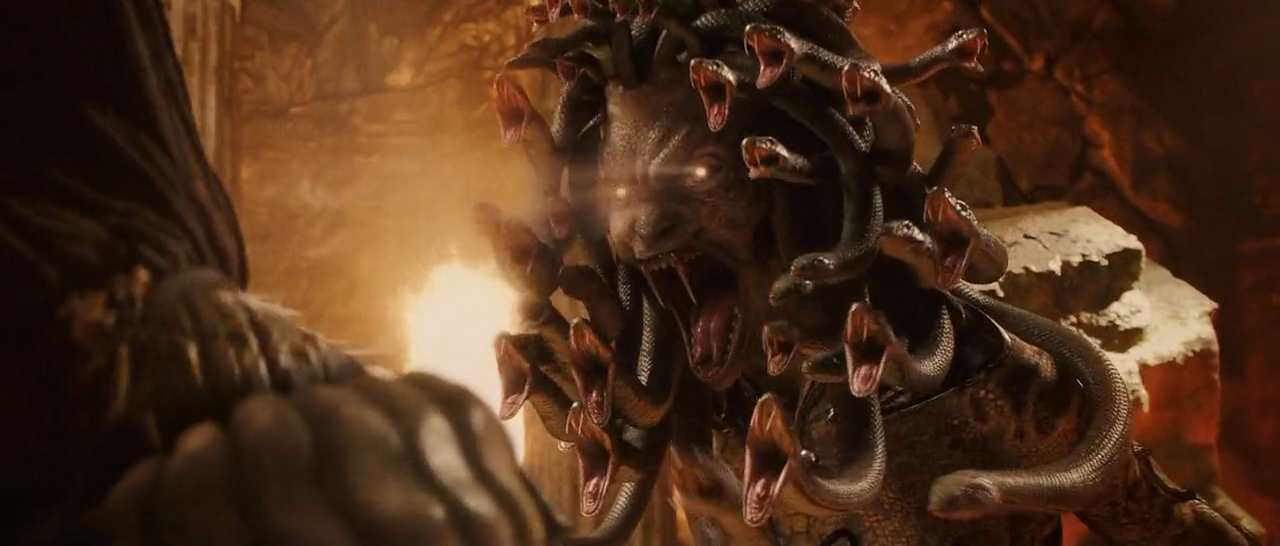
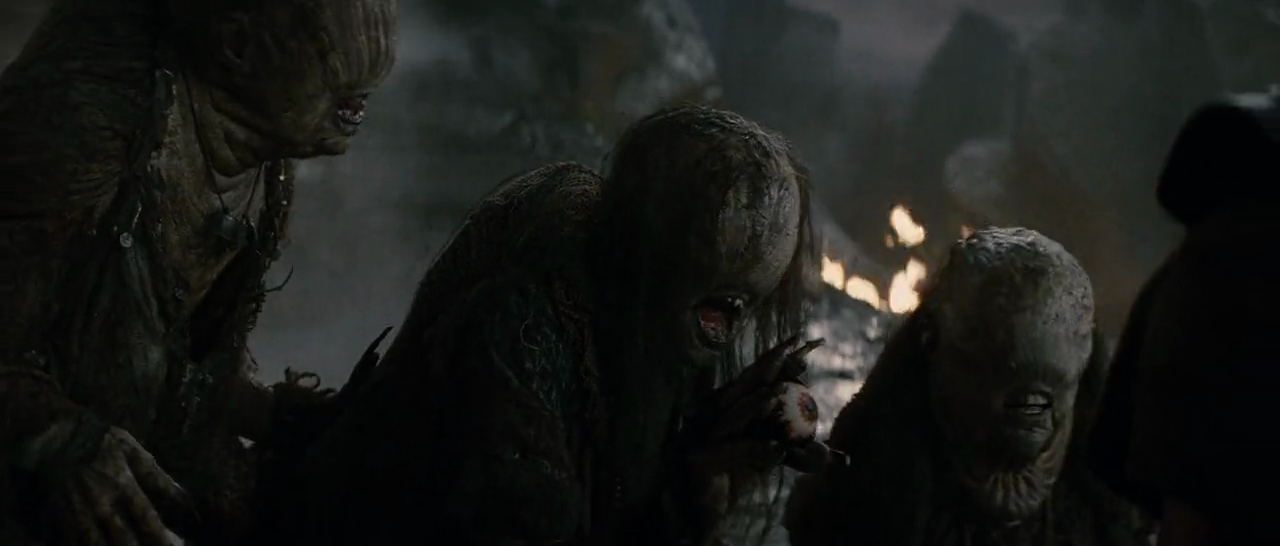
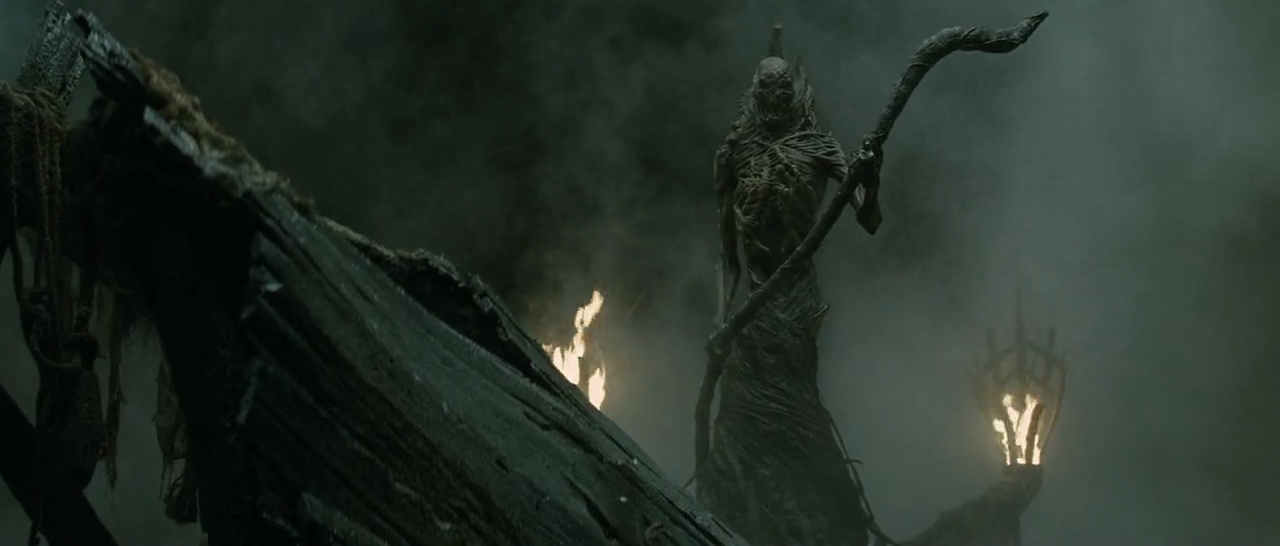
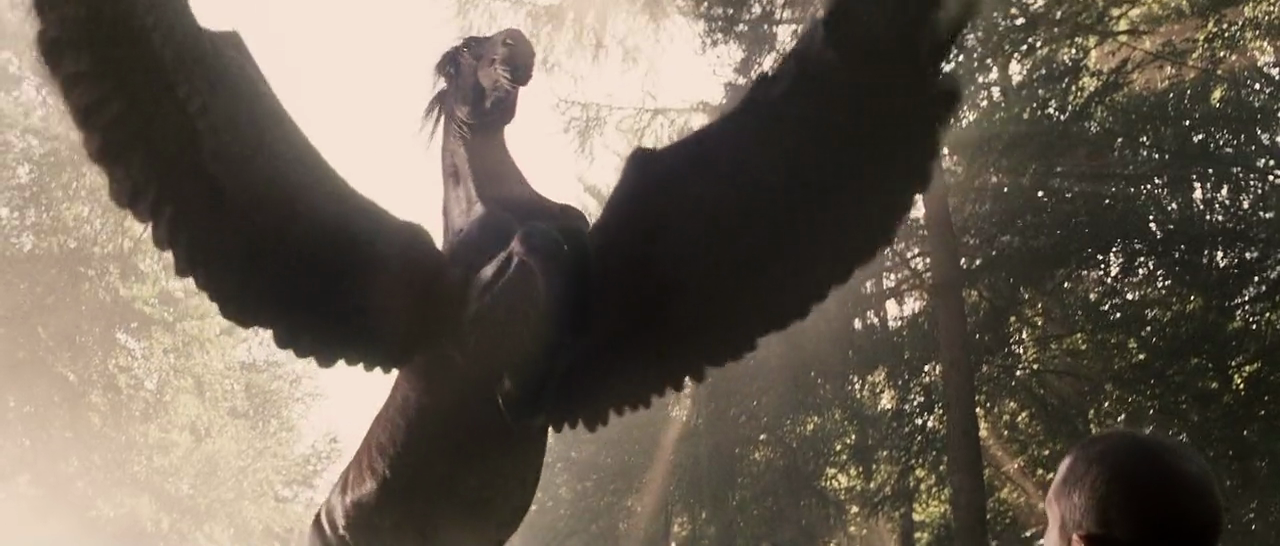
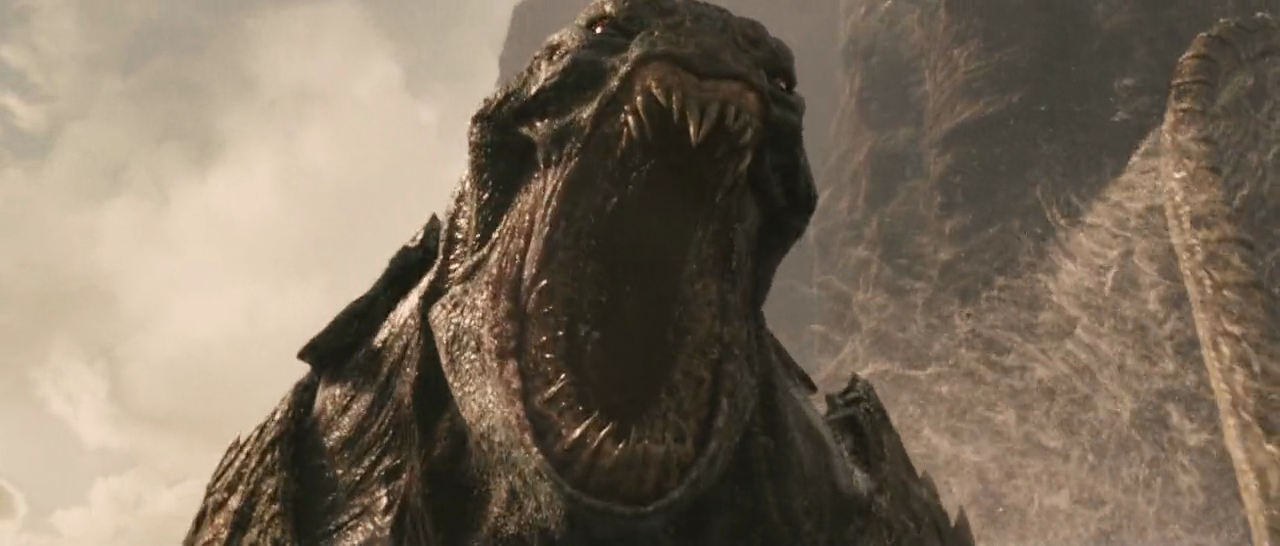
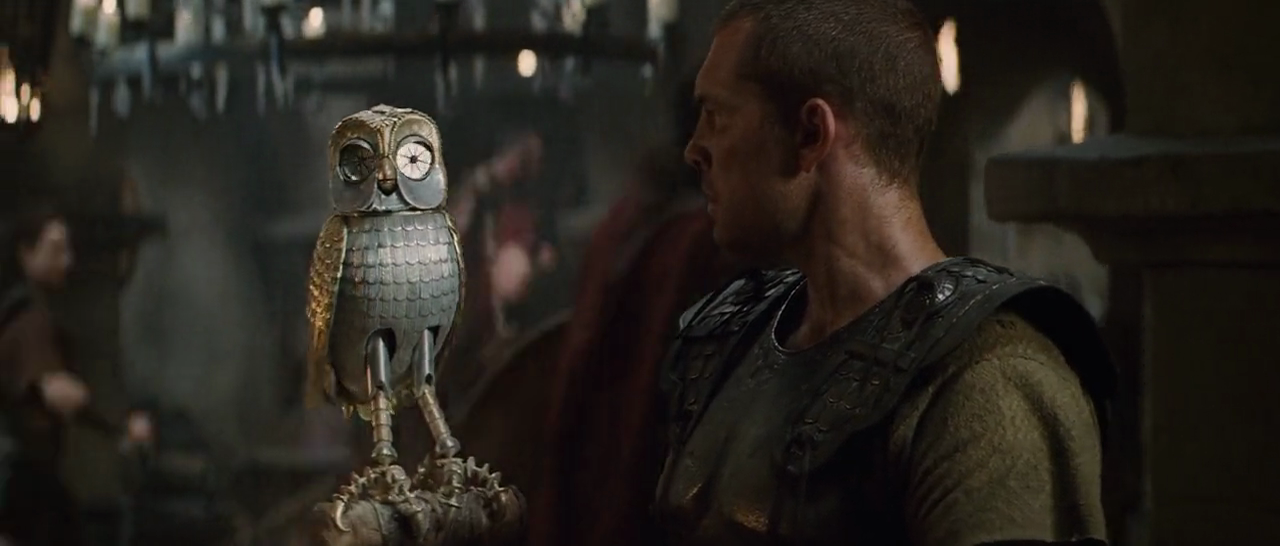

No comments:
Post a Comment